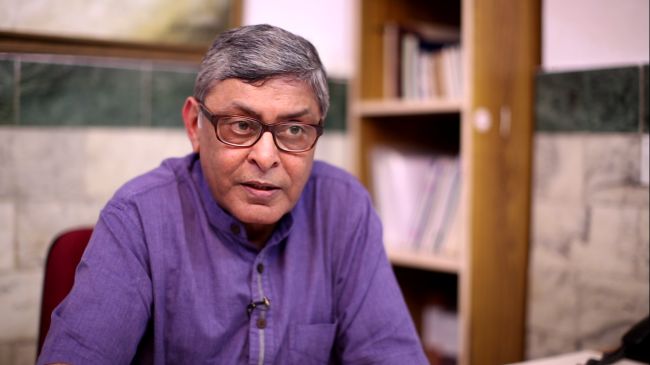New Delhi: It is every mother’s dream to breastfeed her baby but every mother’s breastfeeding journey is different. For many women, it’s the first challenge they face as they embark on their motherhood journey. Experts feel that a woman grows both physically and emotionally from the relationship she forms with her baby while breastfeeding her. Apart from this, breastfeeding helps in providing babies with perfect nutrition, protection from respiratory infections, diarrhoeal disease, obesity and non-communicable diseases. And along with babies, it is also important for new moms as it protects the mother from postpartum depression, breast, uterine cancer and type 2 diabetes. But, many women tend to face issues with this natural process and as a result, sometimes are unable to feed their babies.
Also Read: World Breastfeeding Week: How Superstitions Act As A Barrier For Women To Breastfeed
35-year-old Alika Rastogi from Delhi shares with NDTV why it is okay for new moms to not feed their infants with their own milk. She said,
I am a mother of two boys, one is 10-years-old and the other one is two and half years old. My breastfeeding journey with both my children was a very different experience. With my first child, I struggled to breastfeed exclusively and this made me feel guilty. Whereas, I was exclusively able to breastfeed my second child. It is not in someone’s hand, it is a natural process and one needs to deal with it as it is. Just because you can’t or shouldn’t breastfeed doesn’t mean you can’t be a great mom and have a happy, healthy child.
Women struggle to breastfeed for various reasons from lack of adequate milk supply to medical conditions like HIV Infection, Radiation therapy, Infections and drugs and alcohol addiction.
Breastfeeding is not an easy task and nobody tells you about it, but one should never give up and try as much as possible, added Alika.
Dr Arun Gupta, Central Coordinator, Breastfeeding Promotion Network of India (BPNI), a national network of organisations and individuals dedicated to promoting mother and child health tells NDTV,

Dr Arun Gupta, Central Coordinator, Breastfeeding Promotion Network of India (BPNI) explains the benefits of breastfeeding
Babies are born every second, so every mother and baby story or need is different. As hard as it may be, mothers should know some basics of breastfeeding. Though it is one of the best forms of nutrition, it is not the only option.
Also Read: Breastfeeding Week: Why Is It Important To Sensitise Mothers About Breastfeeding
Dr Arun Gupta further adds that the best way to teach new moms about the importance of breastfeeding is at the time when they come for antenatal care, the time period before the baby is born.
According to the United Nations Children’s Fund (UNICEF), only 41.6 per cent of babies are breastfed within an hour of being born, despite 79 per cent of women delivering in a healthcare institution. Whereas, the National Family Health Survey (NFHS), data indicates that 54.9 per cent children are exclusively breastfed and exclusive breastfeeding is on an average for 2.9 months.
Also Read: World Breastfeeding Week 2019: Five Things To Know
Globally, nearly 6 lakh children and 1 lakh women die every year due to inadequate breastfeeding, states ‘Alive & Thrive’, a global nutrition initiative to save lives, prevent illness, and ensure healthy growth of mothers and children. It is to spread awareness about these issues that World Breastfeeding Week is observed between August 1 and August 7. It also aims to encourage breastfeeding and improve the health of babies around the world. It commemorates the Innocenti Declaration signed in August 1990 by government policymakers, WHO (World Health Organisation), UNICEF (United Nations International Children’s Emergency Fund) and other organisations to protect, promote and support breastfeeding. The theme for this year’s breastfeeding week is ‘Empower parents, enable breastfeeding: Now and for the future!’
Watch
NDTV – Dettol Banega Swachh India campaign lends support to the Government of India’s Swachh Bharat Mission (SBM). Helmed by Campaign Ambassador Amitabh Bachchan, the campaign aims to spread awareness about hygiene and sanitation, the importance of building toilets and making India open defecation free (ODF) by October 2019, a target set by Prime Minister Narendra Modi, when he launched Swachh Bharat Abhiyan in 2014. Over the years, the campaign has widened its scope to cover issues like air pollution, waste management, plastic ban, manual scavenging and menstrual hygiene. The campaign has also focused extensively on marine pollution, clean Ganga Project and rejuvenation of Yamuna, two of India’s major river bodies.





















